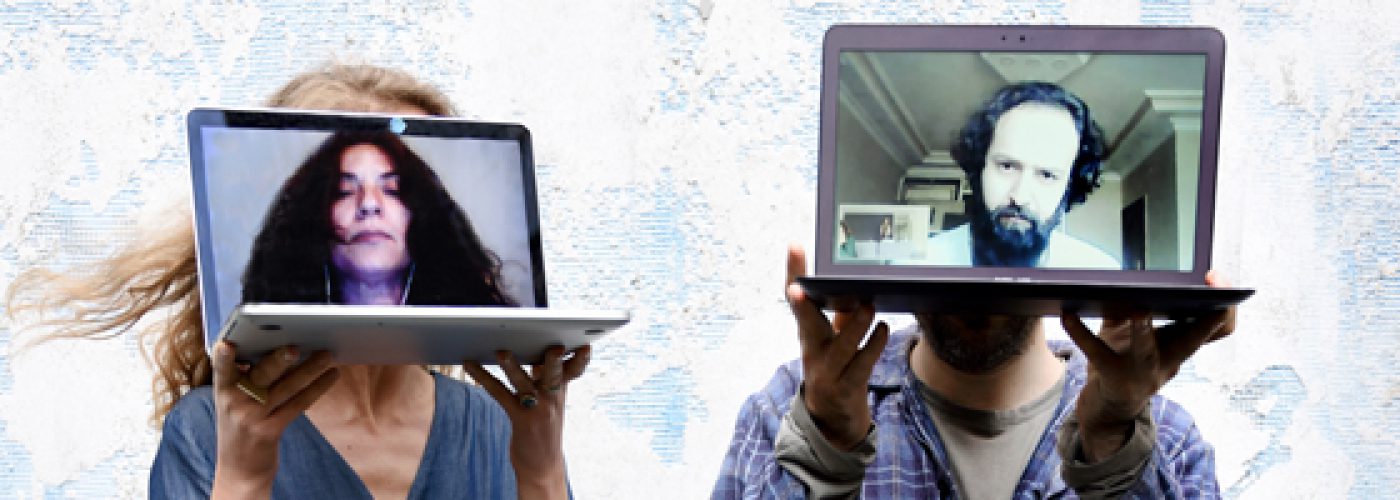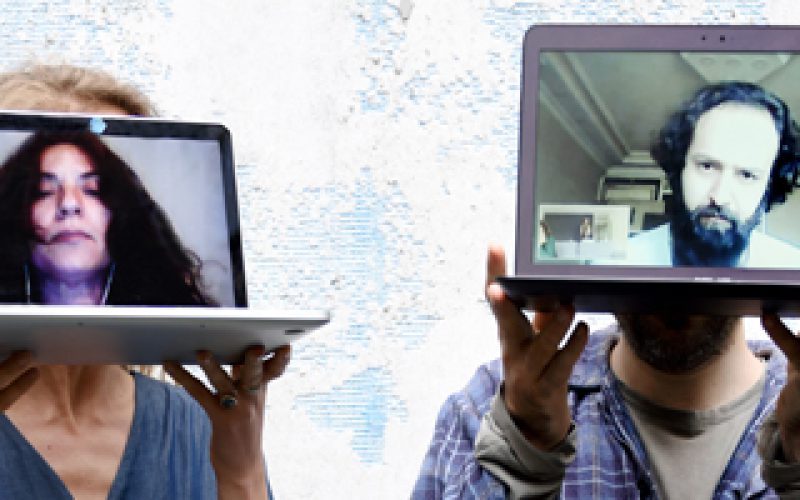Three Rooms/ثلاث غرف (former working title: Personal Empathy Machine) is a performance in the making and part of the EU commissioned project Performance(s) Between 2 shores. Blogger Sheyma Buali gives us regular insight in the process. After the 2nd Residency of Three rooms in Amsterdam at Dancing on the Edge Buali reports:
Three Rooms started out as a theatre project that will explore the physical boundaries that people are facing today. The initial idea was to look into the issues of imprisonment and immobility. As Amal Suhair Omran, Kathryn Hamilton and Hatem Hadawe continued their work on the piece, they realised that because of his visa status in Turkey, Hatem, would not be able to physically be at their two-part residency at Dancing on the Edge in Amsterdam nor their performances later traveling with 2Shores around Europe.
Now, some months later, it has come to light that Amal would also be facing visa restrictions due to her changing status in France. She could not attend the second part of the Dancing on the Edge residency this month. The odds that she will be able to travel to the premiere of her performance at Shubbak Festival in London are slim.
As these barriers continue to rise, it has forced them to come up with more innovative ideas as to how to conduct their piece. As they work, the threesome is incorporating this obstruction into the piece, involving virtual communication and technology as a way of bringing them together. Now the one theatre production in one city will become a tri-located production, with as many audiences as there are restrictions. With Hatem in Istanbul, Amal in Paris and Kathryn the only one able to travel, they will unite the three places by conducting simultaneous performances interconnected by Skype, telephone and video, created with filmmaker Deniz Buga. This technology’s multi-faceted role in the production answers to practical, literal and metaphorical layers.
The technology features strongly in the narrative of the piece. Two people in love are moving from one place to the next due to the war in Syria, remain in contact. They share their thoughts through Skype, SMS or Facebook. Communication technology sustains their relationship and memories, as it does for many people today. How long do people anywhere hold on to old mobile phones and laptops as relics of a time that has passed: the texts they have exchanged, the photos they have taken, the emotions attached to certain ring tones and message beeps.
But also, this use of the medium on stage emphasizes the actors’ distance from each other by beaming them in through Skype. What we see is in fact an absence of actors. They are interacting in the same way that so many people are forced to with their own loved ones scattered around the world, their mobility restricted and regulated, dependent on factors out of their control. The abstraction of Amal and Hatem’s presence becomes a focus point. In this production, the elephant in the room has come on stage.
Simultaneously, it is a form of defiance, allowing the show to go on despite the interference of restrictions on their travel. What was already being envisioned as a show of virtual communication and technological empathy, is multiplying. This expansion to three locations will create a stronger connection among the audiences, diminishing the borders that have, till this point, lead the development of their work.
This is one of the ideas that the Amal, Hatem and Kathryn are working with today. As time passes, this precarious visa situation keeps evolving, as does the piece.
written by Sheyma Buali
Photo © Sofie Knijff


